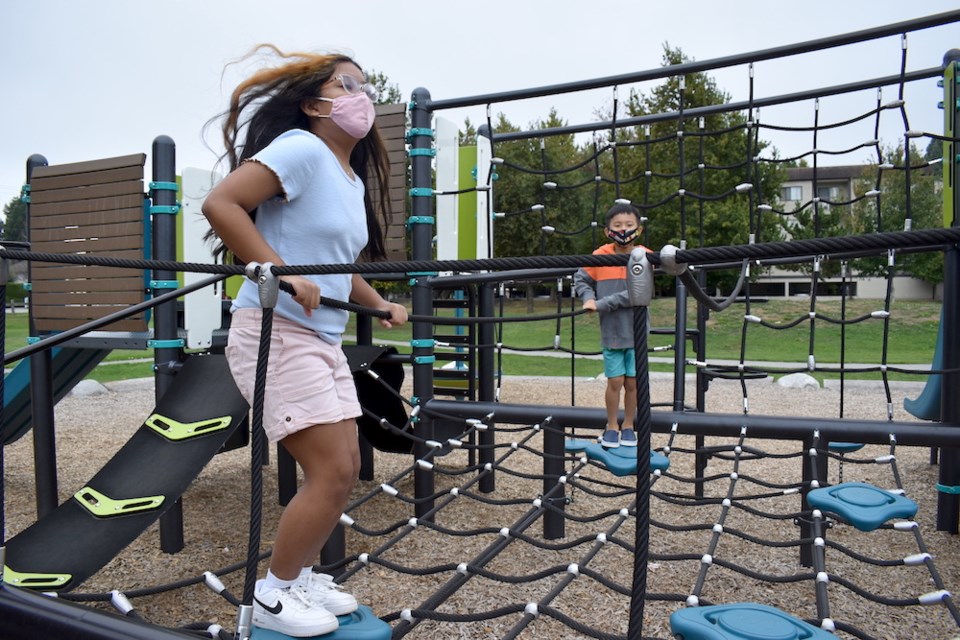It’s Labour Day weekend, the weekend many school children dread and their parents love. I was one of those kids who loved going back to school until I hit about Grade 10 and valued sleeping in in the mornings more than I valued education.
This year, B.C. schools are going to be cellphone-free, after the provincial government restricted the use of cellphones in schools. B.C. Premier David Eby said his young son told him his friends were watching videos on a cellphone on the playground during school breaks.
“Despite the choices that our family made that our Grade 4 kid was not going to be given a cellphone and given access to everything the Internet has to offer in the school yard, the reality was that he had access to unrestricted Internet content away from any adult supervisor, at least part of his school day,” Eby said at a news conference.
Beginning this year, all school districts are required to have policies in place restricting cellphone use. The policies will address when children can use cellphones at school, “from bell to bell.” Students with accessibility and medical needs will be accommodated, a news release says.
As I wrote earlier this year, student achievement is negatively affected by cellphones and the distractions they bring. Eby also referenced mental health challenges, peer pressure, online predators and the barriers to social interaction that cellphones bring.
These are all valid reasons to implement a cellphone ban, but it’s not going to be easy to enforce. In the example of Eby’s son watching videos on the playground, for instance, there are adult supervisors on the playground, but they cannot be everywhere, all at once. They are watching over hundreds of children.
It’s going to be very difficult to make sure no children are sneaking a peak at a cellphone. I hope teachers and other school staff members are given the right tools to enforce the ban and that nuance is allowed in instances when cellphones can enhance learning.
Given the back-to-school news conference was held just weeks before a provincial election, it was slightly more political than it would be in a non-election year.
Eby also announced a ban on protests within a perimeter around schools, saying there had been 20 disruptive protests on school grounds in B.C., including in Surrey, where individual teachers and students were targeted by adults.
Police can arrest or give tickets to anyone disrupting educational activities. These zones will be in effect on school days between 7 a.m. and 6 p.m.
He also announced that all students will learn cardiopulmonary resuscitation (CPR) prior to graduation.
When asked about cuts to school bus service in Surrey and whether the Surrey School Board decision was an indication the district should be given more provincial money, Eby made an interesting comment.
“We could make those decisions centrally in Victoria for every region in the province, but for a long time in British Columbia, we’ve had a model where school boards get the budget from the province, and they make decisions on how to allocate that in terms of their local reality,” Eby said.
It’s an interesting choice of words, to suggest that the province could make detailed budgetary decisions for education, instead of school boards. I don’t remember hearing anything like that from a B.C. premier before, but I will watch to see if anything comes of it.
Although Eby recognized that Surrey schools are under tremendous strain as the province’s fastest growing city – a reality that’s been true since before the NDP formed government – he said budgetary decisions are up to the local board.
“We are partners with the school board. They implement their budgets directly and I trust the judgement of the Surrey School Board if they make decisions around their budget,” Eby said.
“When we look to school boards around funding decisions and how they allocate money to different programs, whether it’s transportation or anything else, we do expect them to take into account the local realities.”
Education is always interesting during an election and this fall will be no different. Despite all the politics, the most important thing is that children are safe in schools and able to thrive and learn. Let’s hope that’s the reality this September.
Tracy Sherlock is a freelance journalist who writes about education and social issues. Read her blog or email her [email protected].



